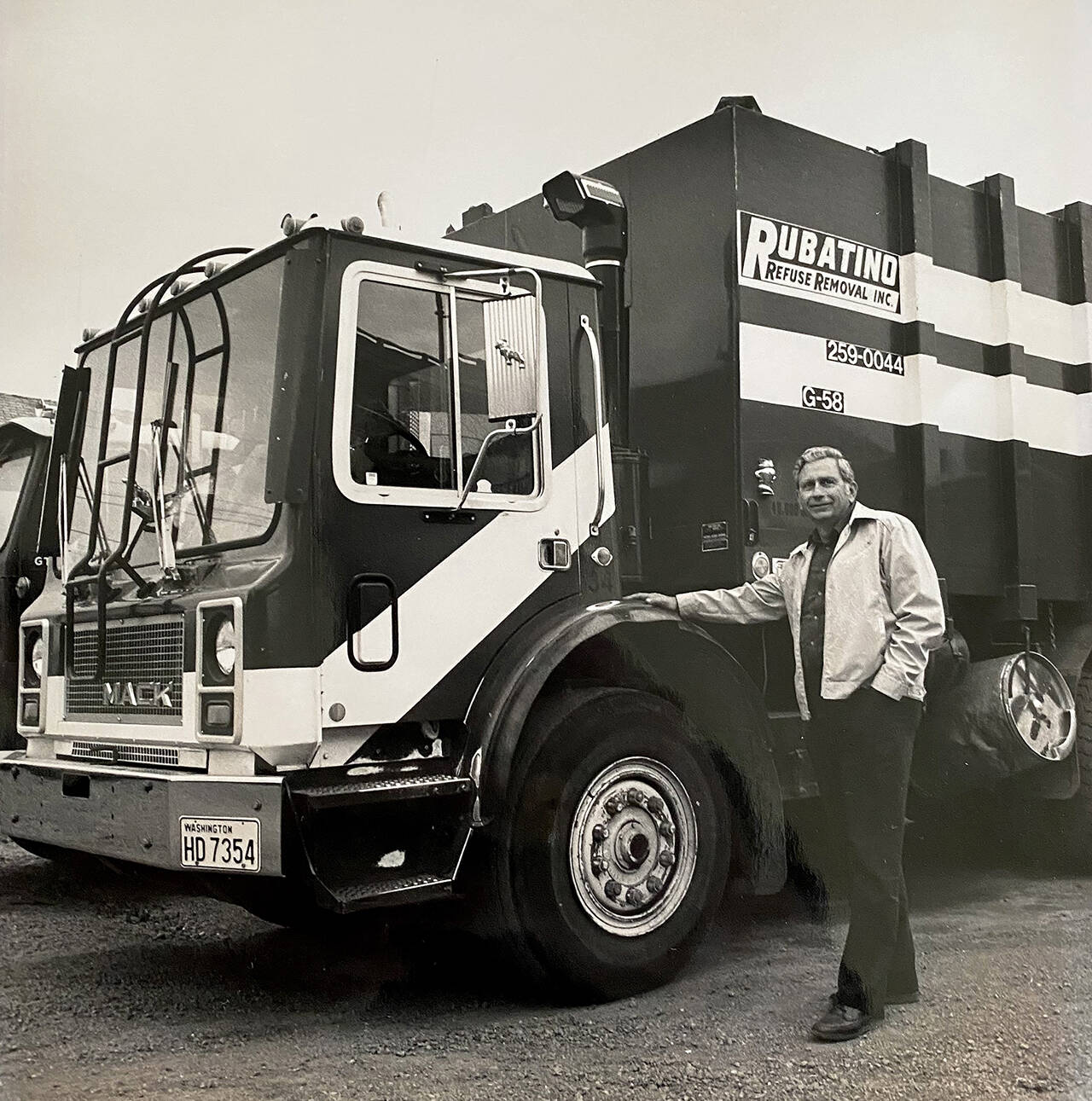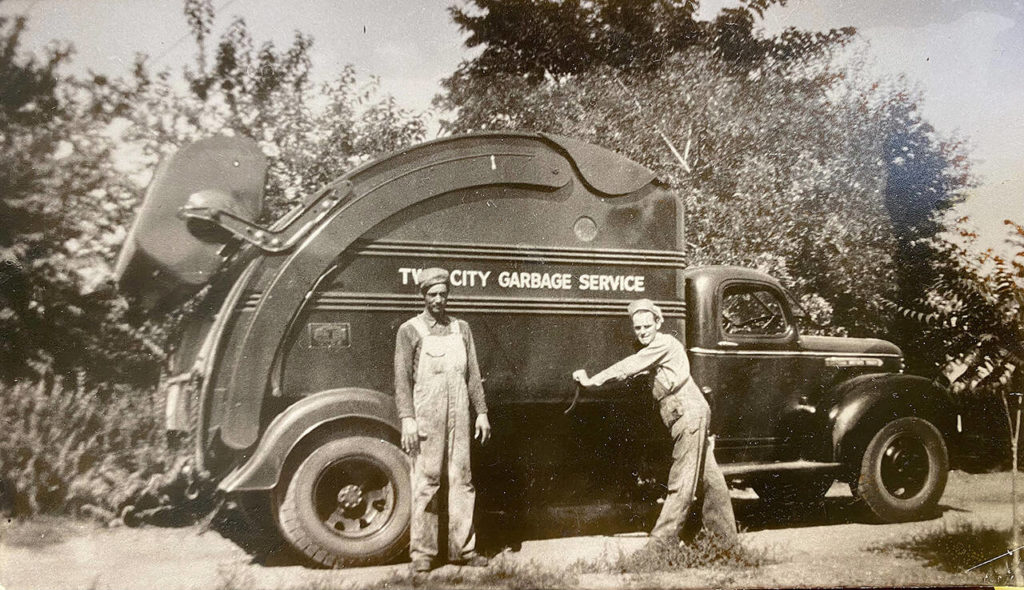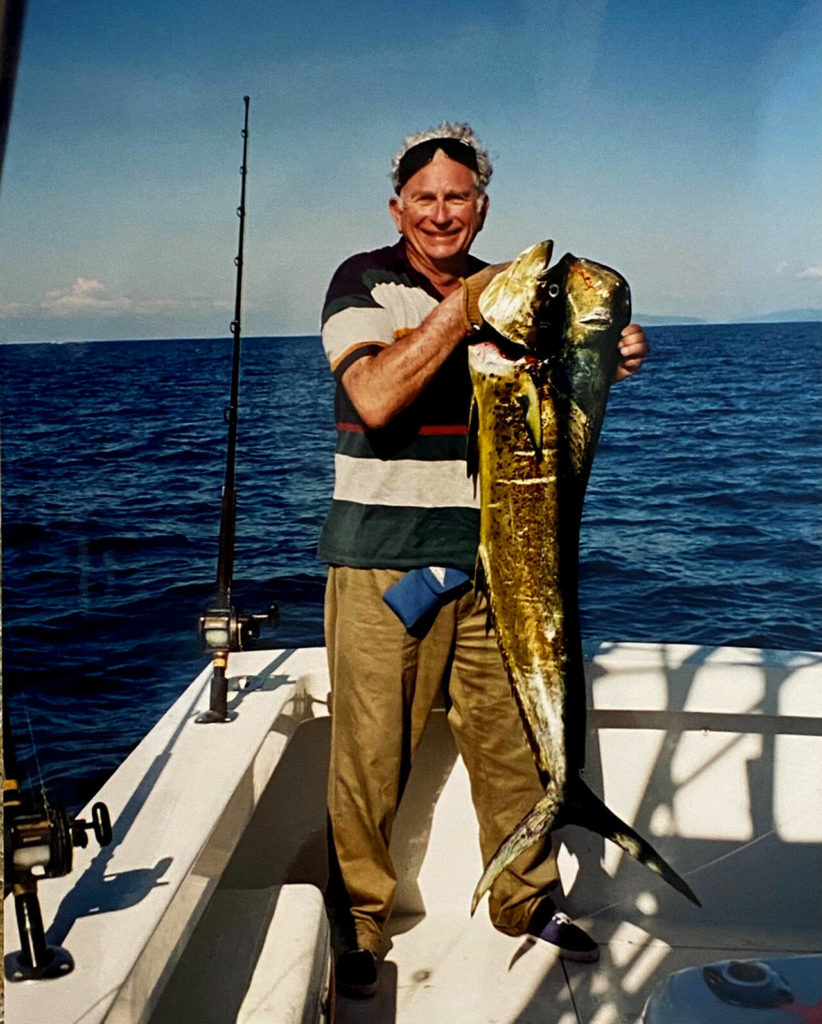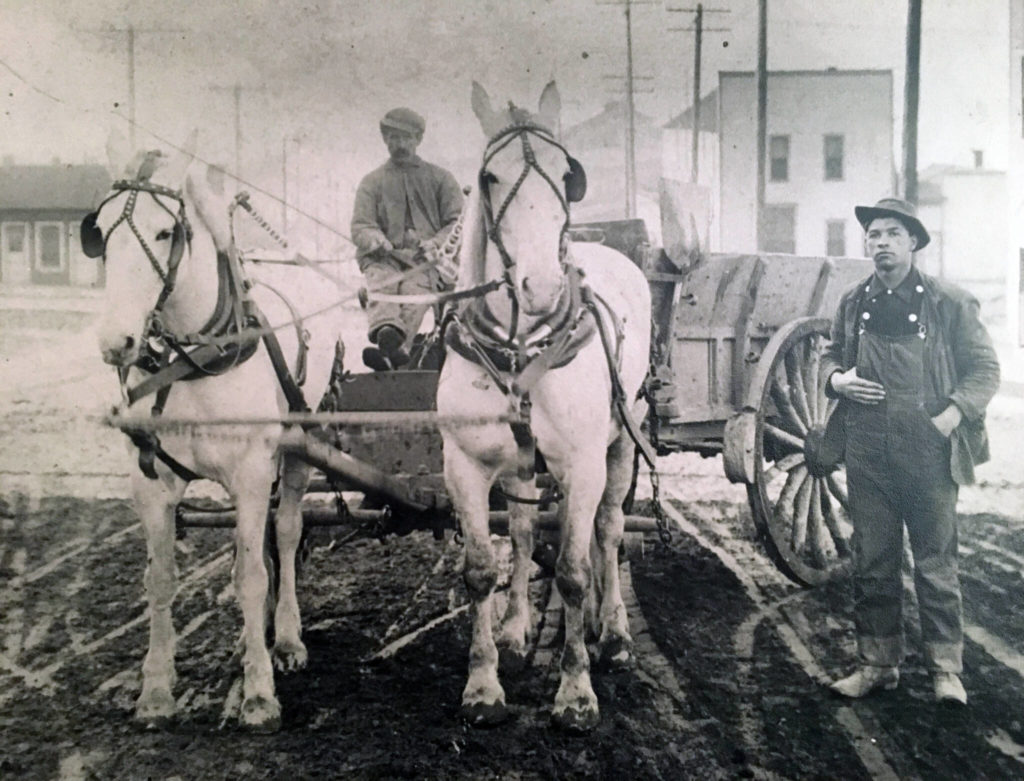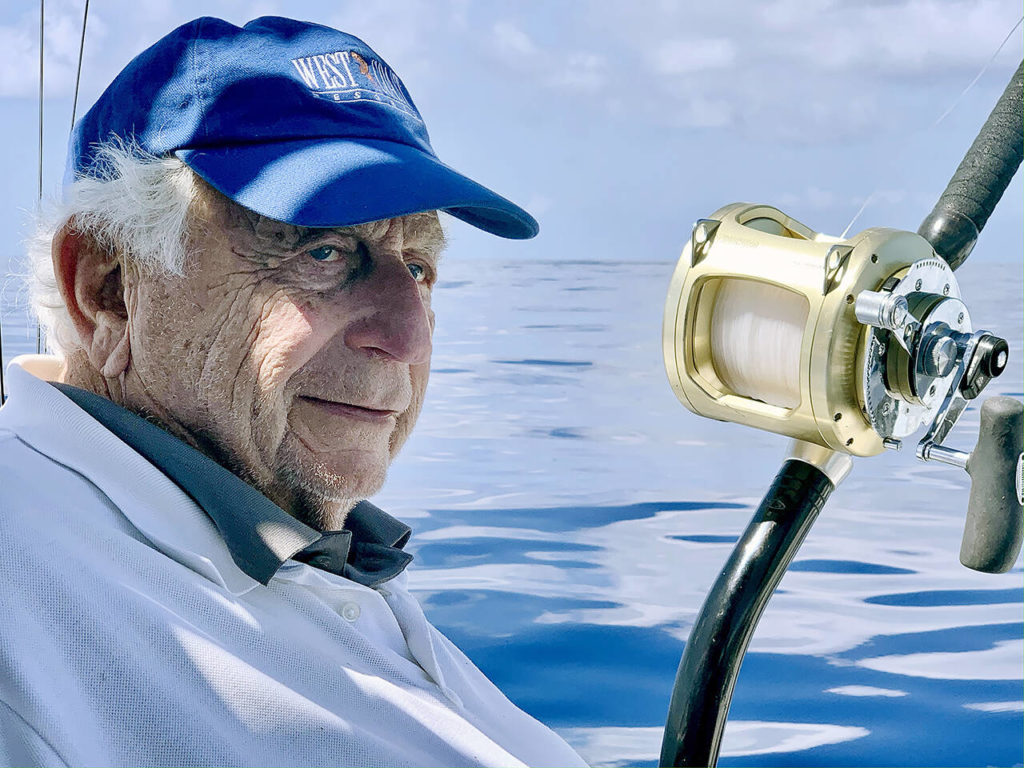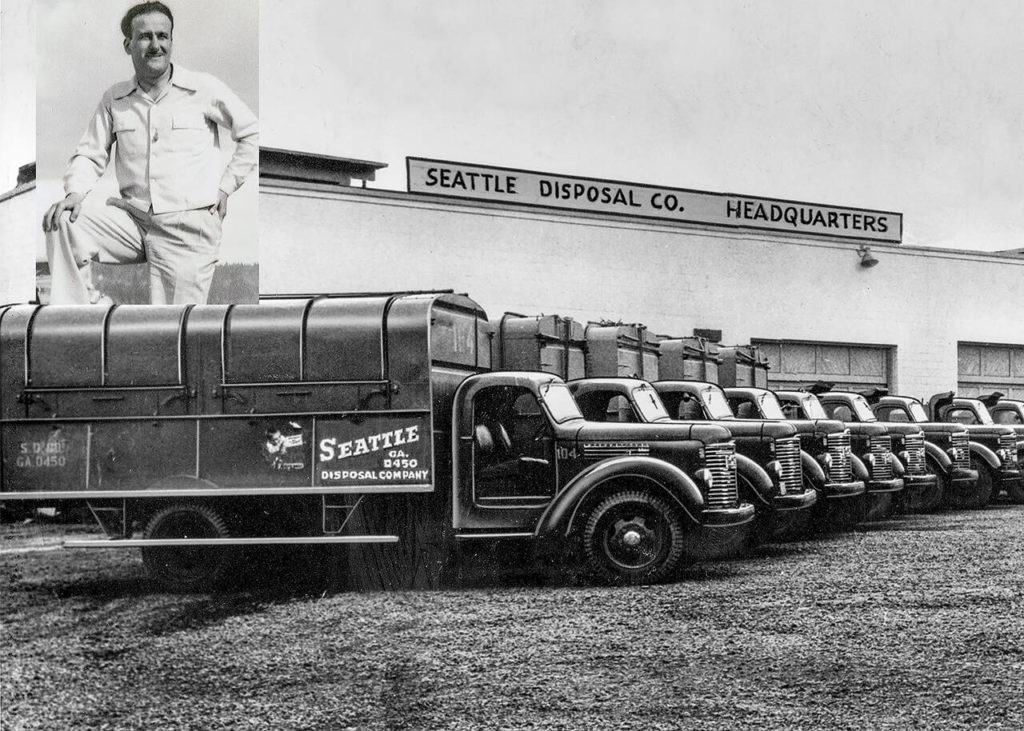EVERETT — Are you a Snohomish County resident? The odds are good you’ll generate three tons of garbage, yard waste and recycling this year.
Somebody’s got to pick that up.
For more than a century, Rubatino Refuse Removal has been collecting the city of Everett’s trash. It’s been a long haul for the Rubatino family, which founded the business in 1907.
Late last year, the Rubatinos sold the disposal company to three partners: Stephan Banchero III, president of Cedar Grove, a Seattle-based organic composting company; Darrick Dietrich, president of Pasco-based Basin Disposal; and Marc Torre, president of Sunshine Disposal in Spokane.
Together, they formed a new ownership group independent of their respective companies.
“The three of us came together separately to make the purchase,” Banchero said.
The terms of the deal were not disclosed.
All three buyers are from families that have been in the trash collection business for generations since the late 1930s.
They’re exactly the kind of buyers that 91-year-old Edward Rubatino, who joined the family business in 1957, was searching for when he decided to sell the 114-year-old company.
Ed, who worked full-time as president through December, had spent 64 years on the job.
“My father wanted to keep the business as a family business,” said Rose Rubatino Goulet, Ed Rubatino’s daughter and a former fourth-generation business owner.
“We just feel that the community is really taken care of, in a special way, with a family-run business versus an international corporation,” Rubatino Goulet said.
The fifth generation has taken a different route, Rubatino Goulet said.
“One of my sons is a physician and one sells outdoor equipment.”
On January 1, the new owners took over the Everett company, keeping the Rubatino name.
“From a look and feel perspective, the business will stay similar,” Banchero said. “We look forward to making Everett a solid waste model.”
All the employees continue with the company. Rubatino Goulet retains her part-time position at the firm. Before the sale, the business employed about 50 people, she said. Many members of the Rubatino family, including her husband Larry Goulet, have “proudly worked for the business for many, many years,” she said.
“We’re proud of our relationship with Everett,” Rubatino Goulet said. “We want to thank our customers for their loyalty and the support of our company.”
One big family
“The solid waste industry is one big family,” said Banchero, 39. “We’re a couple of Italian families that go way back. The Rubatino family knew my dad and my grandfather.”
Banchero’s grandfather founded a Seattle garbage collection business in 1938. For years, it operated under the name Seattle Disposal.
In 1988, the family invested in an organic recycling facility in Seattle’s Maple Valley. Eleven years later, they sold the garbage portion of the business. In 2004, they added a second recycling facility, Cedar Grove, in Everett.
“We take food and yard waste and turn it into compost,” Banchero said.
“Ed wanted to keep the business within a family-owned structure. We were able to provide that,” Banchero said. “We are honored to carry the torch for their family and to make them, and the city of Everett, proud for a long time.”
Darrick Dietrich’s grandfather, John Dietrich, began hauling garbage in Pasco and Pendleton, Oregon, when he was 19 years old. A few years later, John Dietrich and his brothers bought a trash collection company and moved it to Pasco.
“For Ed, what matters most is that we take care of Everett,” said Dietrich, 50, who travels to the city twice a month. “If he had sold it to a corporation, they would have managed it from afar through multiple managers.”
The Torre family started its King County trash collection business in 1938 with horses and wagons, said Torre, 50, who grew up in Kent.
“We’ve all known each other for a long time,” Torre said. “This is an effort to continue the family business. We look forward to providing a high level of service.”
Horse and cart
Three main waste haulers collect trash in Snohomish County: Rubatino Refuse in Everett; Waste Management in Arlington, Bothell, Brier, Edmonds and outside other Snohomish County cities; and Republic Services in Edmonds, Lynnwood, Snohomish and some east county areas.
Rubatino is the oldest.
Angelo Rubatino and two partners founded the business during a winter “when there was no work” at the Black Diamond coal mines, where he worked, Rubatino Goulet said of her great grandfather.
“They got a horse and started picking up trash,” she said.
The Newcastle mines, located in the Cascade Range foothills of King County, were largely worked by immigrants from Italy and Wales, according to historylink.org
“The work was hard and dangerous and those who could went on to other enterprises,” wrote Rita Cipalla, who chronicled a history of the mines and miners.
Angelo discovered an out.
A year later, in 1908, Angelo asked his son Henry to join the business after the two partners left. They named it H. Rubatino Company doing business as City Scavengers. Around that time, Everett, which had incorporated in 1893, was a city of 25,000 residents, a quarter of whom were foreign-born.
Known as the “City of Smokestacks,” Everett was dominated by 95 manufacturing plants, “including 11 lumber mills, 16 shingle mills and 17 mills producing both,” according to historylink.org.
Angelo and his son Henry acquired two carts and four draft horses.
“Occasionally, the horses would get away, running wild in the neighborhood, dragging their harnesses,” according to one Everett history, “In those days, garbage men were junk men too. They collected metals, glassware and other items. The garbage was hauled to Bayside, and barged out into Puget Sound and dumped.”
Drivers pitched in to help fill the city’s potholes, Rubatino Goulet said. On trash runs they would pick up “coal clinkers,” hard chunks of burnt coal, which they used to fill the divots in the road, she said.
The Rubatino’s horse and cart likely shared the road with Everett’s Bargreen Coffee Co., which began delivering beans in a horse-drawn wagon in 1898, and the Macomber Farms delivery wagon. Founded in 1906, Macomber is still going strong today.
Later, Henry’s brother Fred joined the business, and then his son Tom, “and then my dad, Ed, and then me,” Rubatino Goulet said.
In 1937, the Rubatinos replaced the horses with a fleet of garbage trucks. It caused a bit of commotion among the company’s drivers, Rubatino Goulet said.
Suddenly, they had to learn their routes, she said. Until then, they relied on the horses to turn onto the right street and pull up to the right house.
“The horses had just known where to stop,” she said.
The company continued to operate under the name City Scavengers until 1967, when it was changed to Rubatino Refuse Removal. Scooter service began in 1968. The zippy little scooters that can navigate tight alleyways and side streets are old “meter maid trucks that have been stretched and modified,” Rubatino Goulet said.
Disposable consumerism
Until the 19th century Industrial Revolution, the small amount of household waste produced was “mostly organic, such as food scraps,” according to a 2021 Snohomish County report.
“Clothing was patched until it was no longer wearable, and then the scraps were used as rags or sewn together for other uses,” the report said.
The advent of disposable mass-produced consumer goods — from shoes to paper napkins — boosted the amount of garbage produced by a single household.
Private companies unearthed a lucrative niche hauling trash.
Smaller towns and villages, on the other hand, sometimes depended on “piggeries,” small pig farms to dispose of food waste. Just 75 pigs could consume about a ton of food waste each day.”
In 1880, less than a quarter of American cities had any kind of organized solid waste collection system. By the time the Rubatinos launched their business in 1907, about two-thirds of the American cities offered some sort of trash collection service.
It would be another 60 years before the United States enacted waste collection regulations. In 1965, Congress passed the Solid Waste Disposal Act. Before then, waste was usually burned on site in barrels or pits, or sent to landfills.
In Washington, recycling services began with the 1989 passage of the Waste Not Washington Act, which introduced curbside recycling.
“By the end of the twentieth century, waste management had become a combination of science and art,” the Snohomish County report said.
According to Rubatino Goulet, her grandfather always said, “You make your living in the community, you give back to that community.”
Henry Rubatino was president of the Sons of Italy in Everett and served 25 years on the board of Catholic Community Service. Ed Rubatino and Rubatino Goulet also served on the board. Both are members of the Everett Rotary Club and are past presidents.
“When you have your name on the side of your truck,” Ed Rubatino said, “you want to do the best you can in your community.”
Janice Podsada: 425-339-3097; jpodsada@heraldnet.com; Twitter: @JanicePods.
Talk to us
> Give us your news tips.
> Send us a letter to the editor.
> More Herald contact information.
